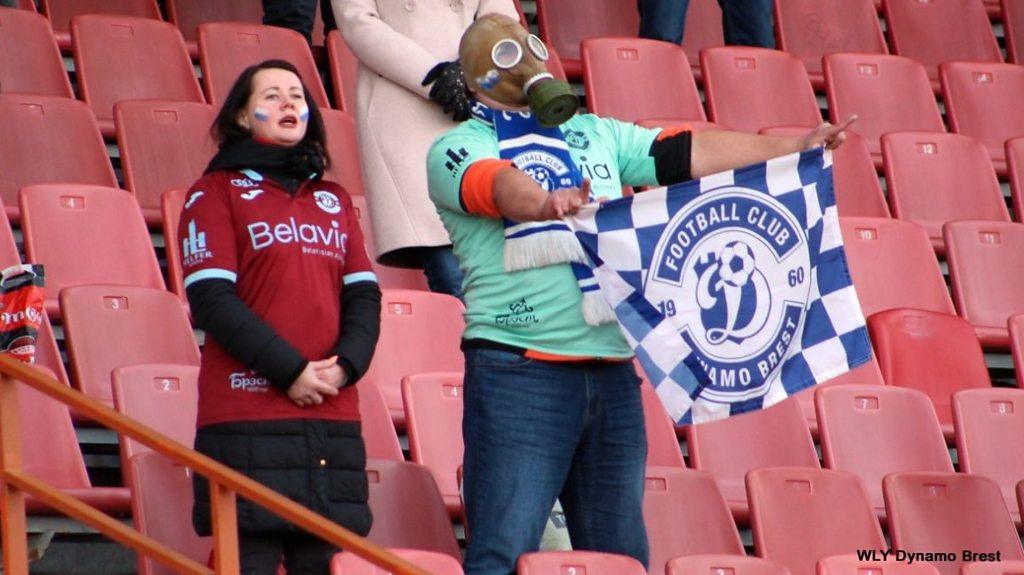Belarus: The stay-at-home mum challenging an authoritarian president
- Published
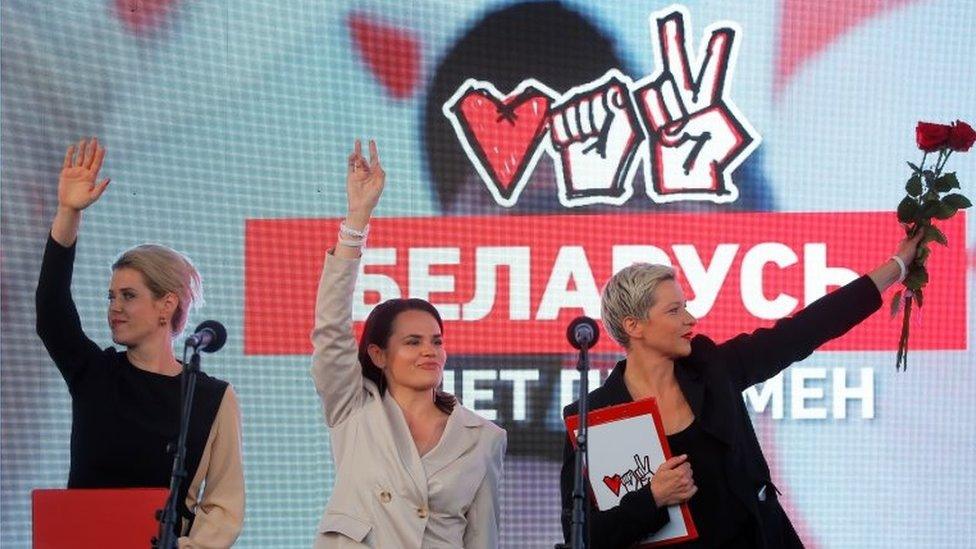
Svetlana Tikhanovskaya (centre) have joined forces with Veronkia Tsepkalo (left) and Maria Kolesnikova
Svetlana Tikhanovskaya would prefer to be frying cutlets than running for president of Belarus.
At least, that's what the stay-at-home mum laughingly told a crowd of supporters at a recent campaign rally.
But she also told them this election bid to challenge Alexander Lukashenko's 26-year-long grip on power was a "mission" she could not refuse.
The political novice only stepped in as a candidate for president when her husband was arrested and blocked from registering. A second serious rival to Mr Lukashenko has also wound up in prison and a third has fled the country.
So Ms Tikhanovskaya, 37, who had to send her two children abroad for safety reasons, has become the surprise face of change in Belarus.
She's joined forces with Veronika Tsepkalo, the wife of one would-be candidate, and Maria Kolesnikova, campaign manager for another.
And the three women have been drawing record crowds to rallies across the country.
Activists and journalists are being rounded up and jailed in Belarus ahead of the election
"They are not Margaret Thatcher, the type of ladies who are in politics all their lives, but they are very sincere," is how Valery Tsepkalo explained the trio's unique appeal, in an interview in Moscow.
A former ambassador to the US, Mr Tsepkalo's own attempt to register for the presidential race was rejected.
He told the BBC he had to leave Belarus after getting information "from several sources" that his arrest was imminent.
"In previous election campaigns, Lukashenko had public support. But this time it's vanished and that's why he is so nervous," Mr Tsepkalo argues.
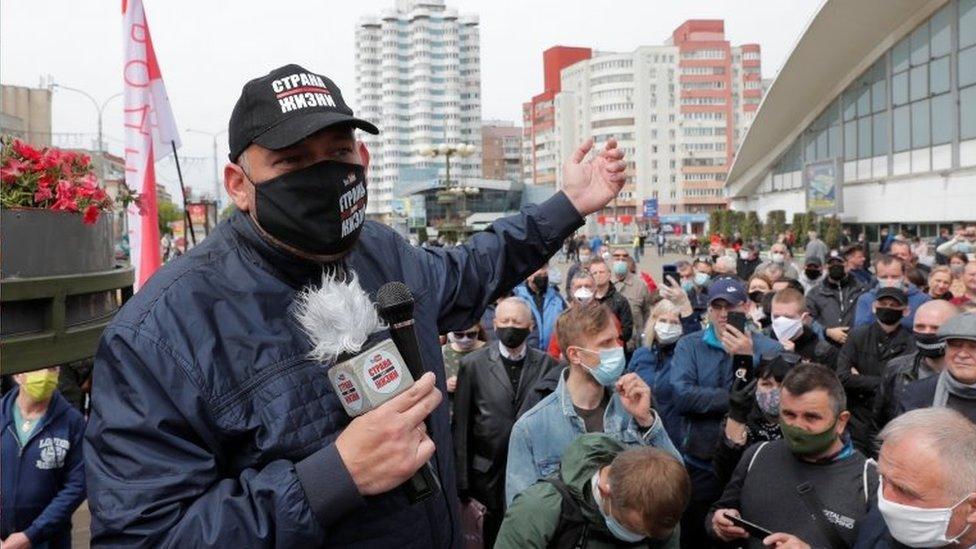
Sergei Tikhanovsky (centre) was arrested in May
The shift in mood was captured by Ms Tikhanovskaya's husband, Sergei, in a popular video blog. For months, he toured Belarus interviewing people from farmers to pensioners.
Remarkably outspoken, they complained of pervasive corruption and poverty, a lack of opportunity and poor pay.
"I was two when the cockroach came to power," a man called Vladimir told Mr Tikhanovsky in one video, using the blogger's nickname for the Belarusian president. "My child is two now, and I just want something to change."
"We are here to put an end to the dictatorship," another man said.
That pent-up frustration became public when Belarusians began signing up in support of opposition candidates planning to register for the 9 August elections. When they were barred, crowds flooded the streets in anger.
Belarus president Alexander Lukashenko plays ice hockey despite global Covid-19 crisis
The human rights group Viasna says more than 1,000 peaceful protesters were detained this summer alone, almost 200 of them spending up to 15 days in custody.
"It's a reaction to the unprecedented level of public engagement, the spread of protests and opposition to the president," Minsk-based political analyst Artyom Shraibman explains the authorities' tough response.
He argues that a significant dip in support for Mr Lukashenko - even in traditional, rural strongholds - has been fed by a "grim" decade of economic stagnation topped off with anger at the president's dismissive response to the Covid-19 crisis.
"You had this perfect storm of factors that were against Lukashenko in this election campaign," Mr Shraibman says.
Plots and problems
As Team Tikhanovskaya has been touring the country meeting and motivating voters, President Lukashenko has been visiting his security forces.
For years, his chief appeal to voters has been as a guarantor of stability.
So on Tuesday, he was treated to a demonstration of the latest crowd-dispersing techniques by riot police.
And the next day, he claimed to have uncovered a foreign plot to "destabilise" the country - a threat the president had been warning of, and vowing to prevent "at all cost".
One of the suspects is led away from the sanatorium near Minsk
Images of burly men being handcuffed in their underpants were screened on state television, and officials claimed 33 mercenaries with the private Russian military group, Wagner, had been arrested at a sanatorium outside Minsk.
Russia has called for its citizens' swift release saying they were in transit and had "nothing to do with…Belarusian affairs", and the men had certainly been living very openly for alleged coup plotters.
But the odd affair is a blow to relations with Moscow, traditionally a close ally of Minsk.
It's also a serious new worry for Ms Tikhanovskaya as investigators have linked her husband directly to the detainees and charged the blogger with planning "mass unrest".
Her campaign speeches are occasionally broken by sighs as she admits to struggling with the pressure of a role she would never have chosen.
"This is a scary time, but we feel huge support from the people," Ms Tsepkalo told the BBC by phone between rallies: when her husband fled Belarus, she stayed on to support Svetlana.
"We see change for Belarus as like fresh air. It's needed as soon as possible," she says.
The women have no political programme, just one plea: vote for Svetlana to oust Mr Lukashenko then she'll call fresh, fair elections and free all the political prisoners.
"I'll fulfil my mission, then step aside quietly," she told one rally, laughing when a man shouted up at her to stay.
Despite the buzz around the women's bid, Alexander Lukashenko has been winning elections in Belarus by a landslide for almost three decades. A recent official poll gave the president over 70% popular support, even now.
So opposition supporters are on their guard against fraud.
"What happens on election day is very important," Mr Shraibman argues.
"The security forces are ready to crack down and in the past they've not used 10% of what's in their toolkit.
"I think it's now a question of how brutal the crackdown will be - and how large the protests," he says.
- Published31 July 2020
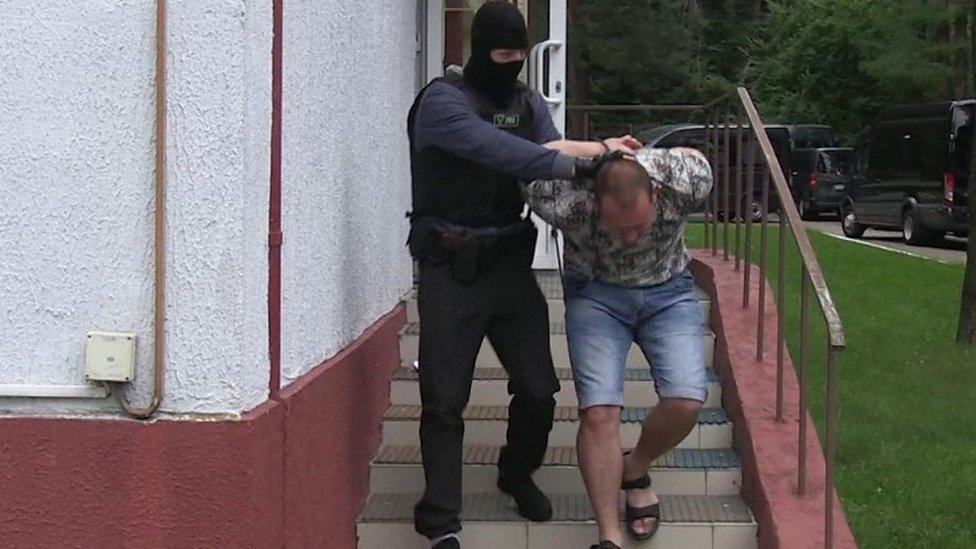
- Published14 July 2020
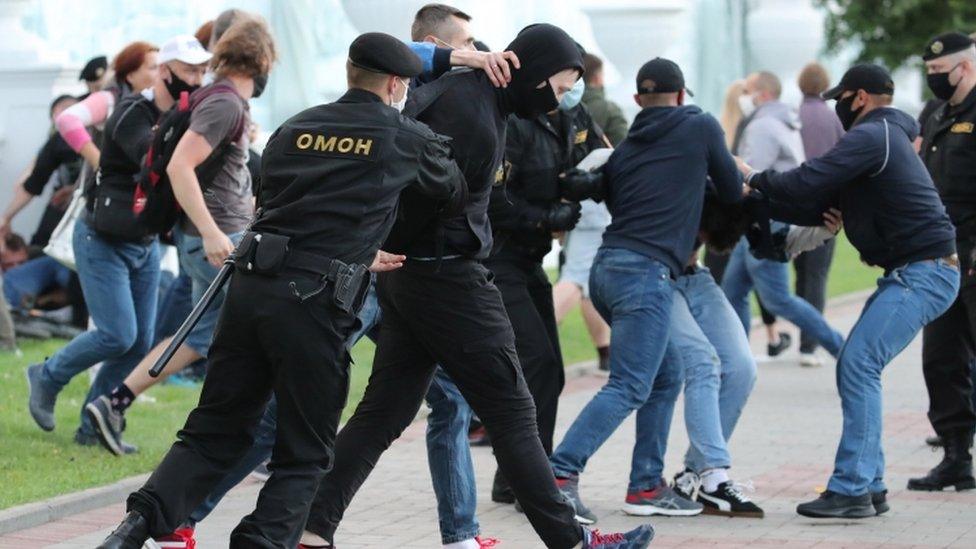
- Published19 June 2020
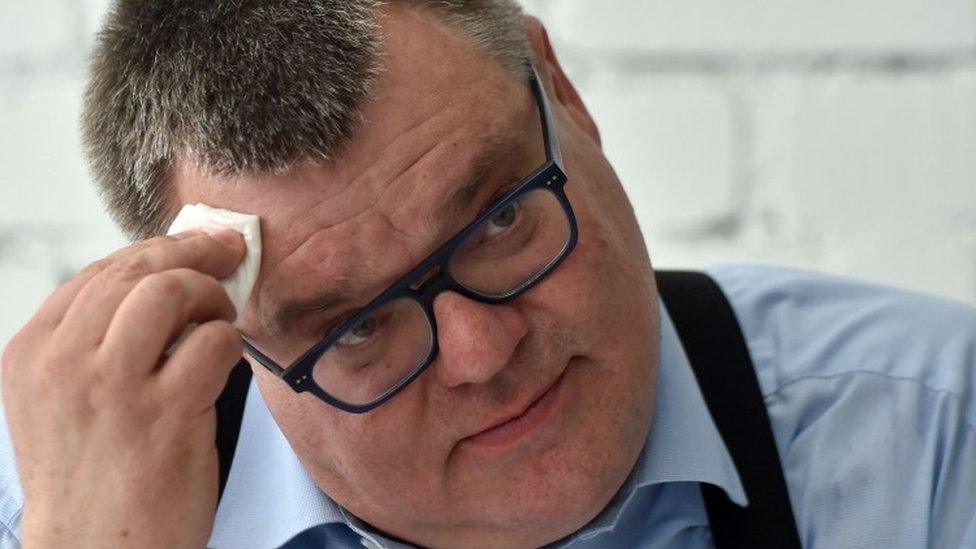
- Published20 June 2020
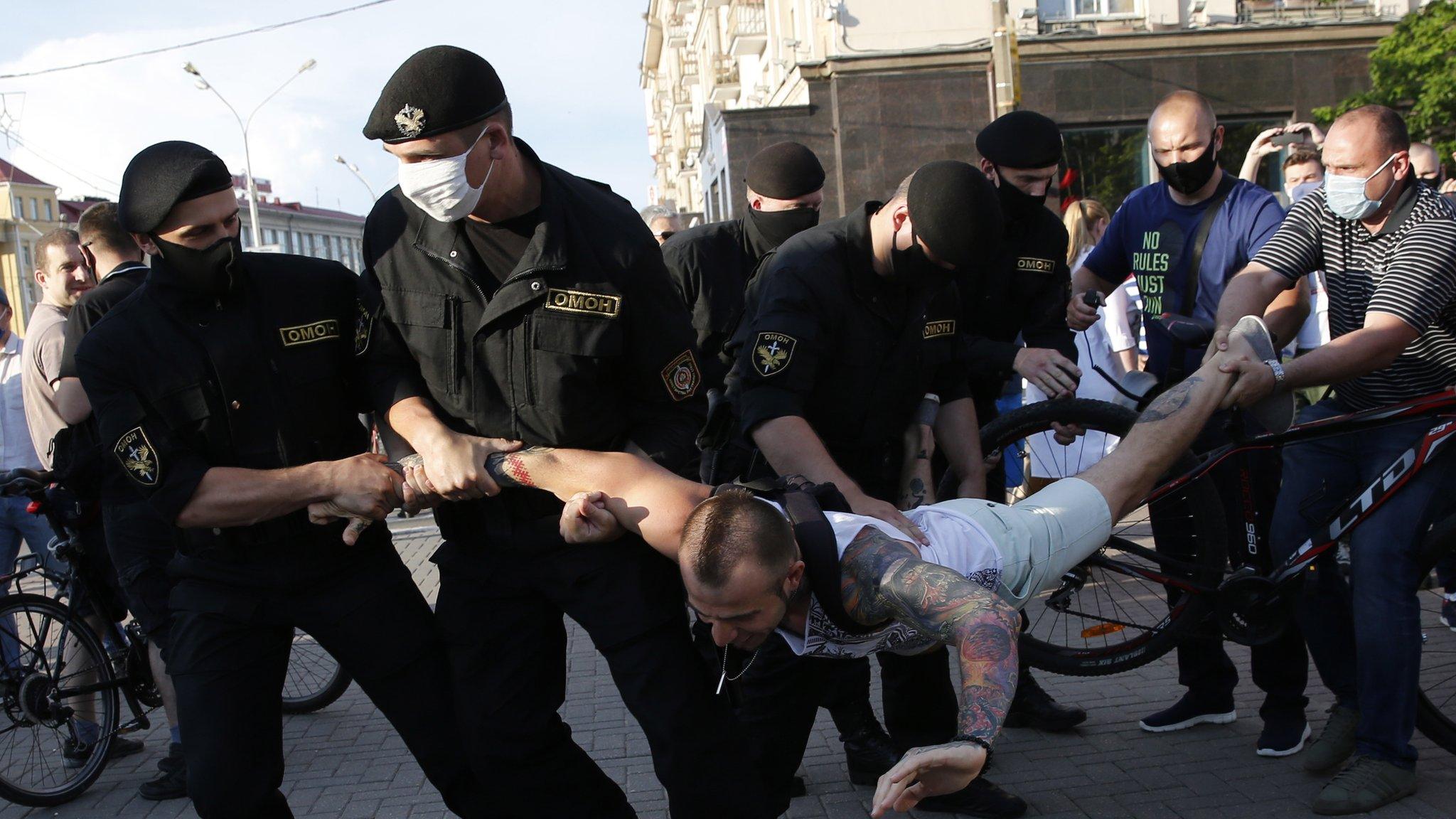
- Published8 April 2020
